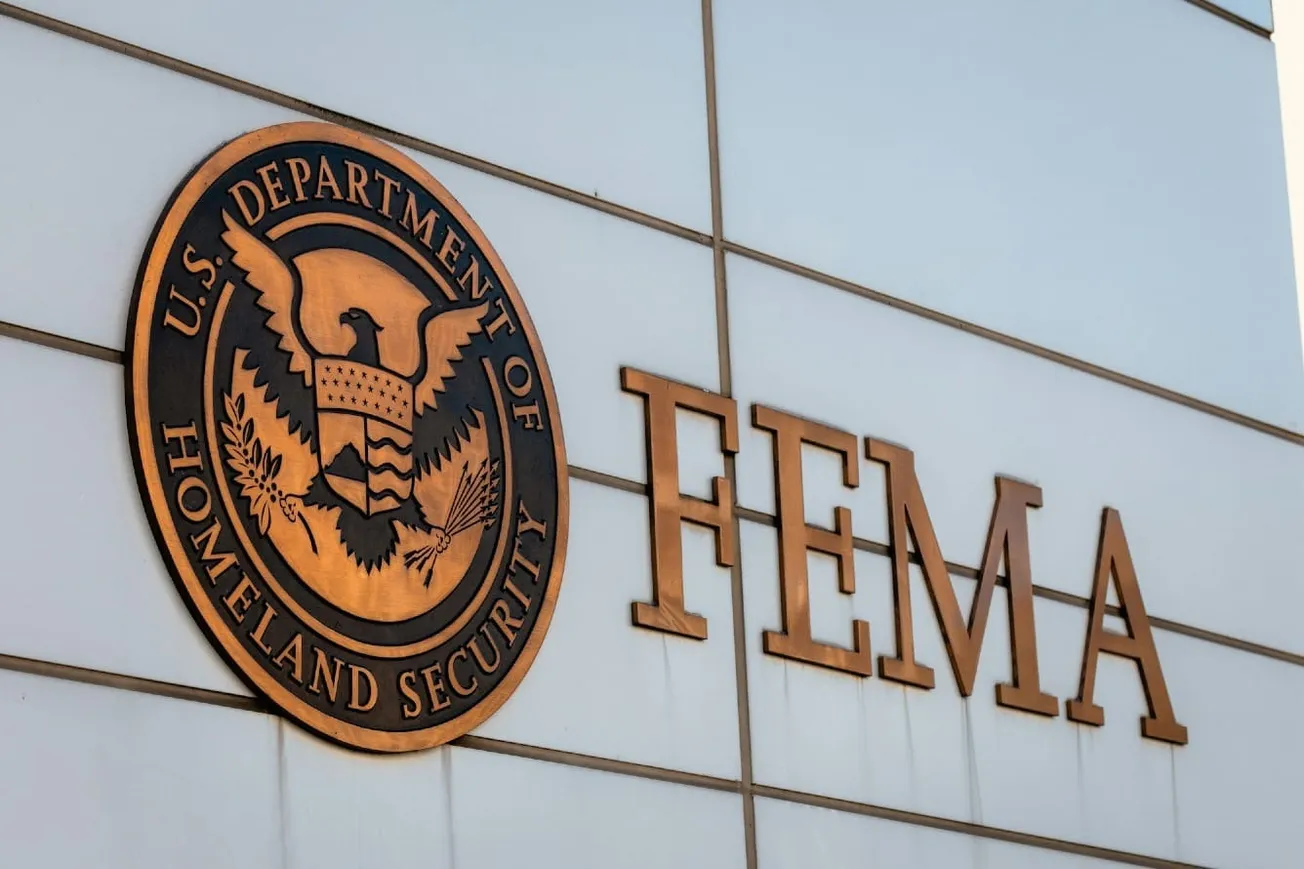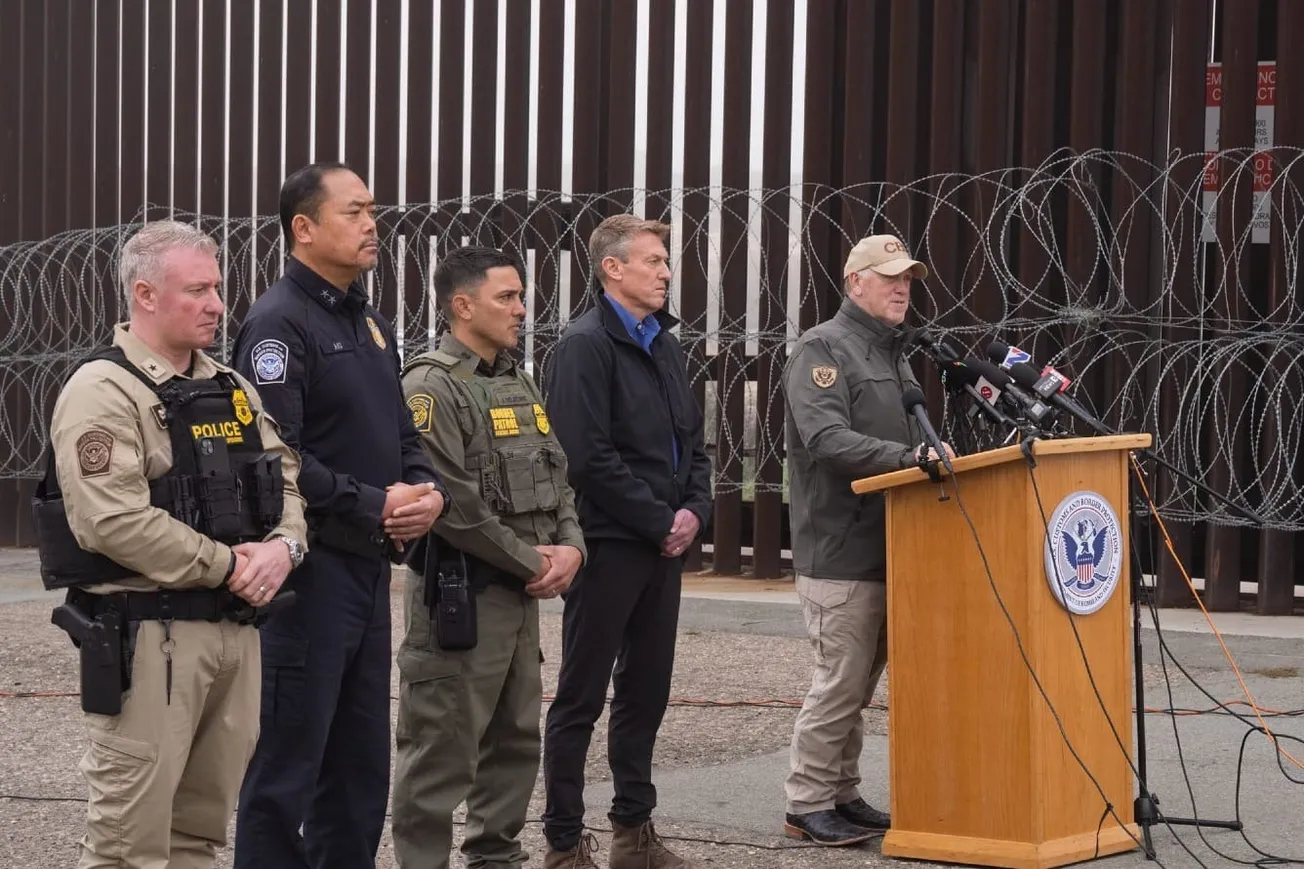The United States will see a dramatic surge of immigrants as Title 42, a policy restricting entry to the U.S. due to the COVID-19 pandemic, expires on May 11.
As I write this, hundreds of thousands of illegal immigrants are at the southern border, ready to cross into America, and Washington has few plans to interdict the massive onslaught of cartels bringing additional illegal guns, deadly fentanyl, human trafficking, and child and female exploitation into every American community.
50% of Americans believe that migrants crossing the border is a problem for their community. There is no significant difference in perception among urban, suburban, or rural people. Republicans are more likely to see migrants as a problem, with 66% considering them a problem, while 50% of Democrats do not see migrants as a problem.
Americans have mixed perceptions of the impact of migrants on communities, with 27% citing an increase in crime and a decrease in employment opportunities, while 26% reporting an increase in economic activities.
Americans support tough measures to stop fentanyl smuggling into the U.S. across the southern border. Nearly three in four (74%) favor designating drug cartels as foreign terrorist organizations. 75% support imposing trade sanctions, and 54% approve of deploying military personnel to force Mexico’s leaders to act against drug cartels.
Those are the findings of an online TIPP survey of 1,414 Americans nationwide completed in early April for the National Sheriffs Association.
Are Migrants A Problem For Communities?
One in two Americans (50%) thinks migrants crossing the border is a problem for their community. 44% think they are not a problem, and another 7% are unsure.
Over one-fourth (28%) say it is a very big problem, and another 22% call it a moderate problem. Most Westerners (53%) and Southerners (52%) are most likely to call immigrants a problem. The share of Midwesterners describing immigrants as a problem is 44%, while 45% for the Northeast.
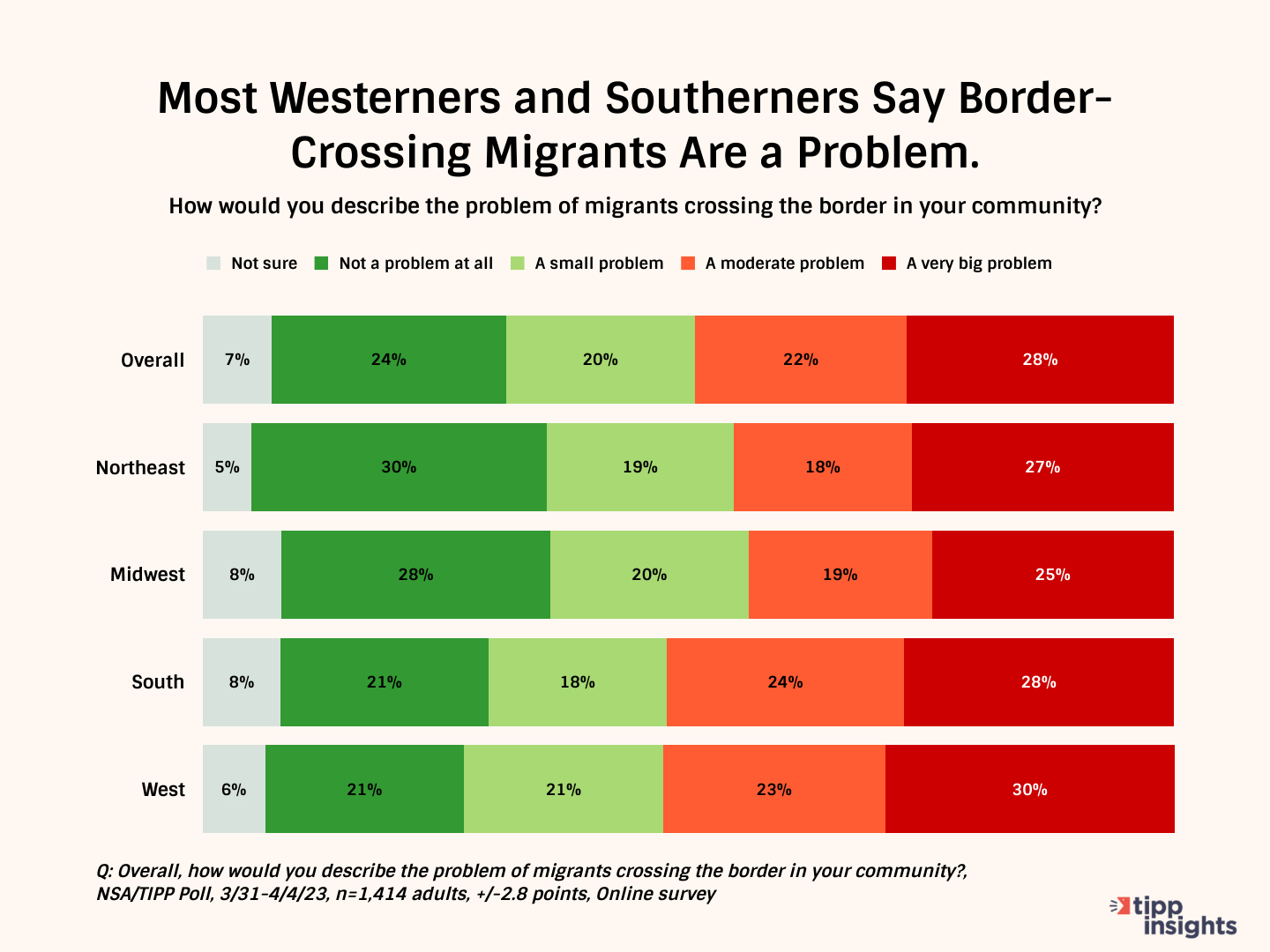
Interestingly similar shares of people from urban (51%), suburban (49%), and rural (49%) describe migrants as a problem.
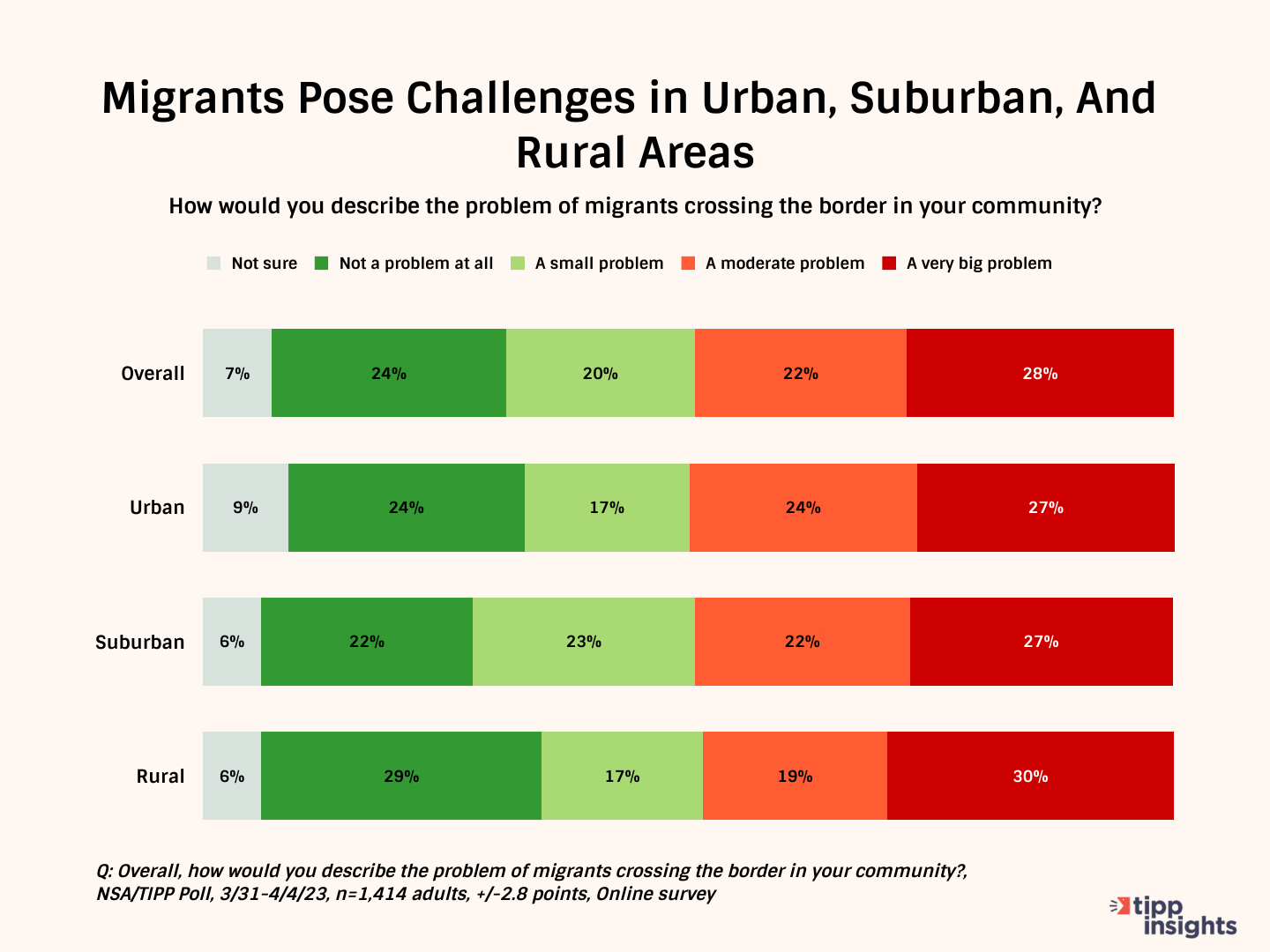
By party, Republicans (66%) see migrants as a problem, with nearly one-half (48%) saying it is a very big problem and another 18% as a moderate problem.
However, one-half of Democrats don’t see migrants as a problem. 44% do.
Independents divide equally: 22% a very big problem, 20% moderate problem, 23% a small problem, and 24% not a problem at all.
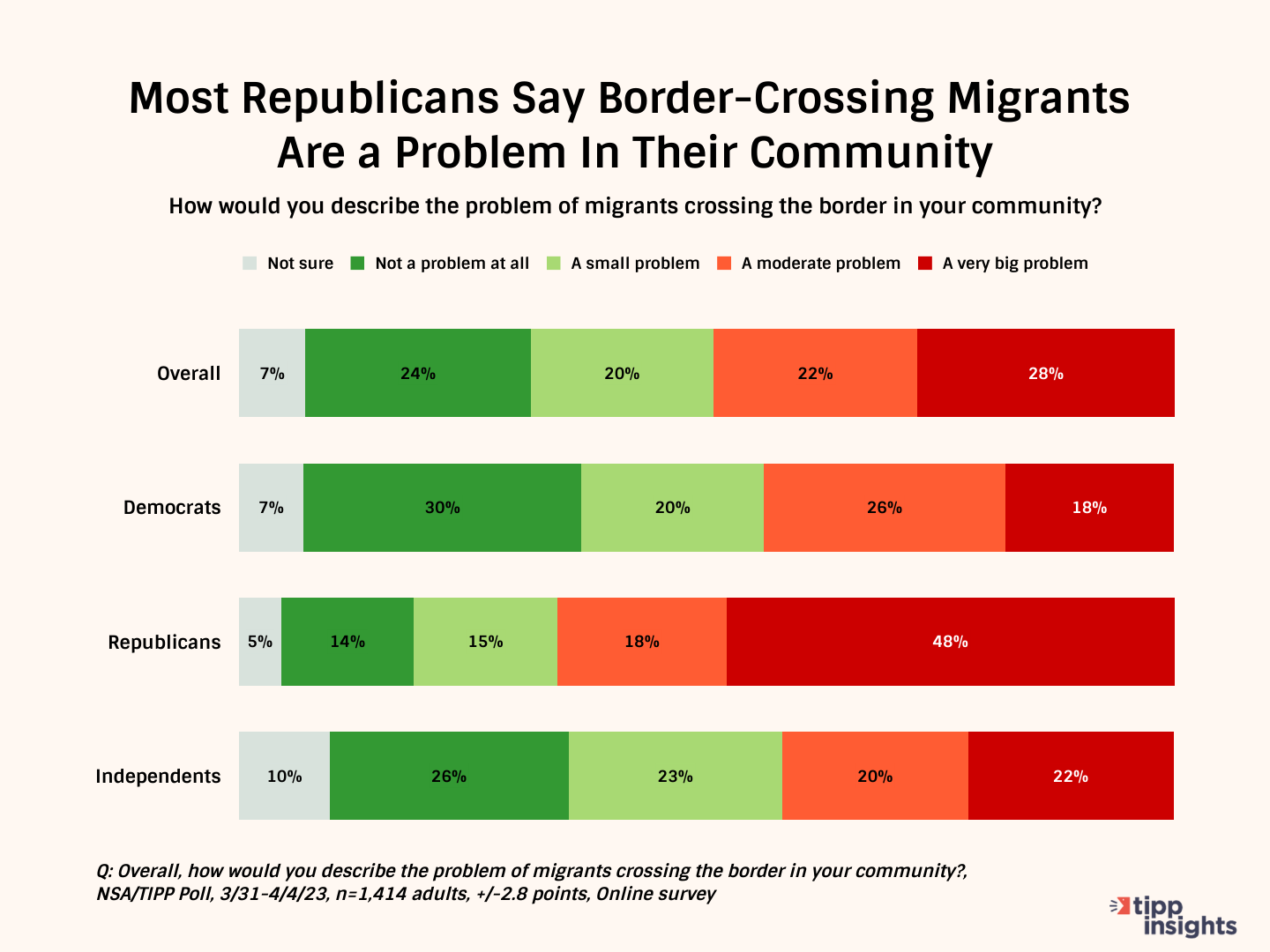
What Impact Do Migrants Have On Communities?
Americans have mixed perceptions of migrants’ impact on communities. On the negative side, over one-fourth (27%) cited an increase in crime and decreased employment opportunities (26%).
However, on the positive side, 26% reported an increase in economic activities in their communities.
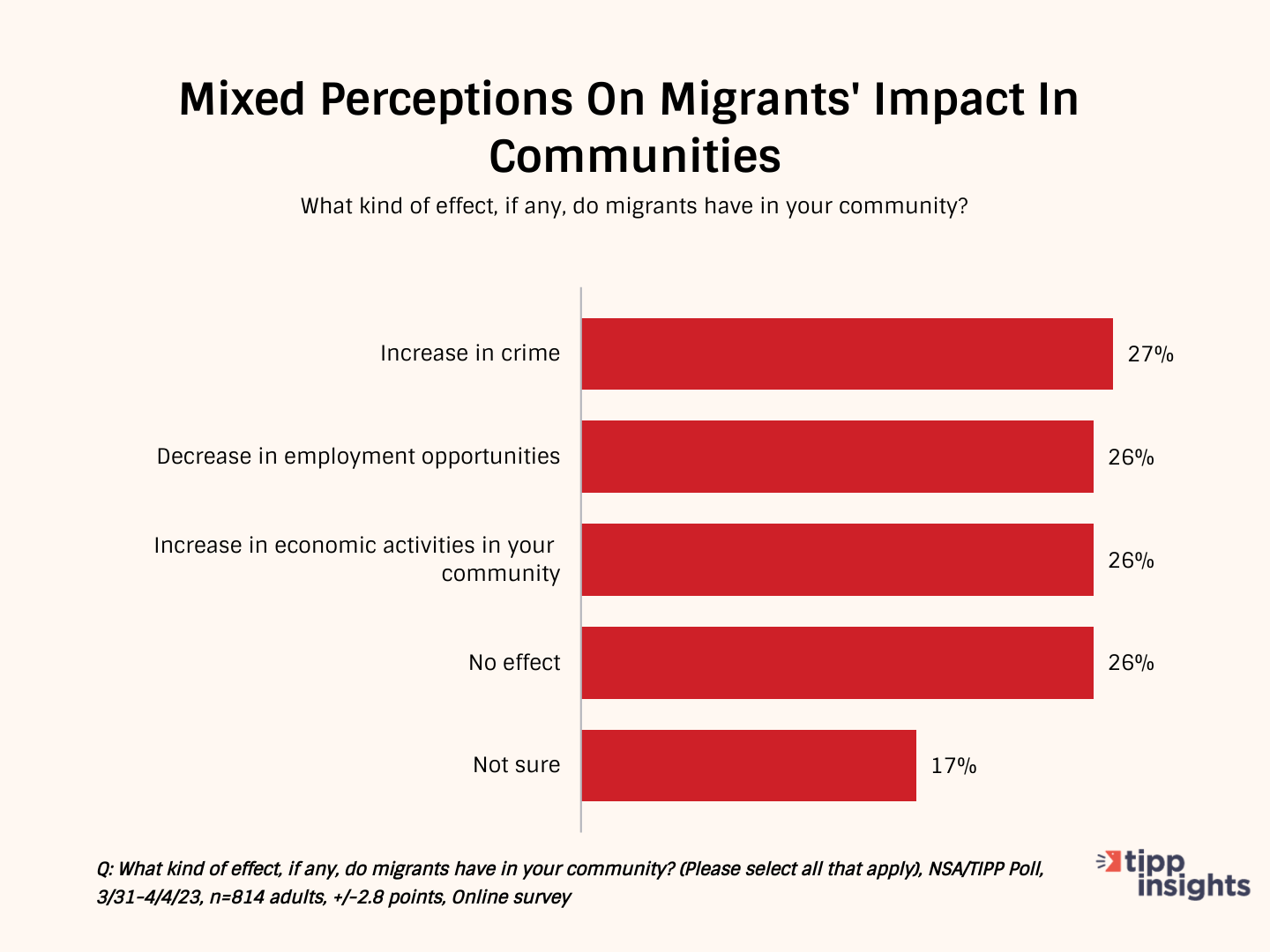
The survey tested three tough measures to stop fentanyl smuggling, all of which received support.
Foreign Terrorist Organization Designation
Americans of all party affiliations overwhelmingly support designating fentanyl smuggling cartels as foreign terrorist organizations. The support is highest among Republicans (83%), followed by independents (73%) and Democrats (71%).
The measure received support in all regions: the Northeast (79%), the Midwest (70%), the South (71%), and the West (81%).
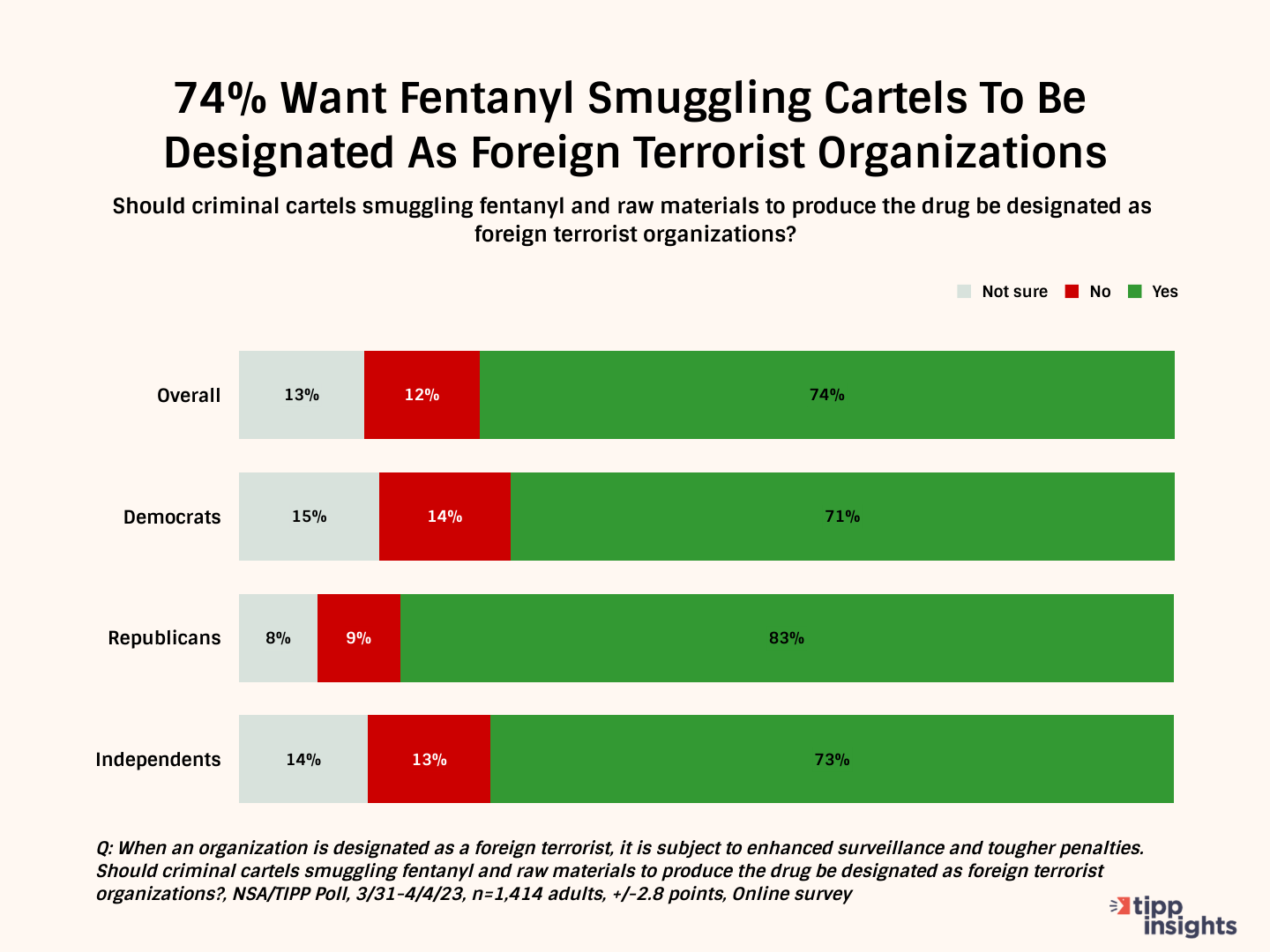
Trade Restrictions
Three in four (75%) approve trade restrictions to force Mexico’s leaders to step up enforcement against fentanyl smuggling. While 45% approve strongly, another 30% approve somewhat.
The measure received support from a majority of all political affiliations. Republicans (84%) are most likely to support with enthusiasm. Three-fourths (76%) of Democrats and 68% of independents support the measure.
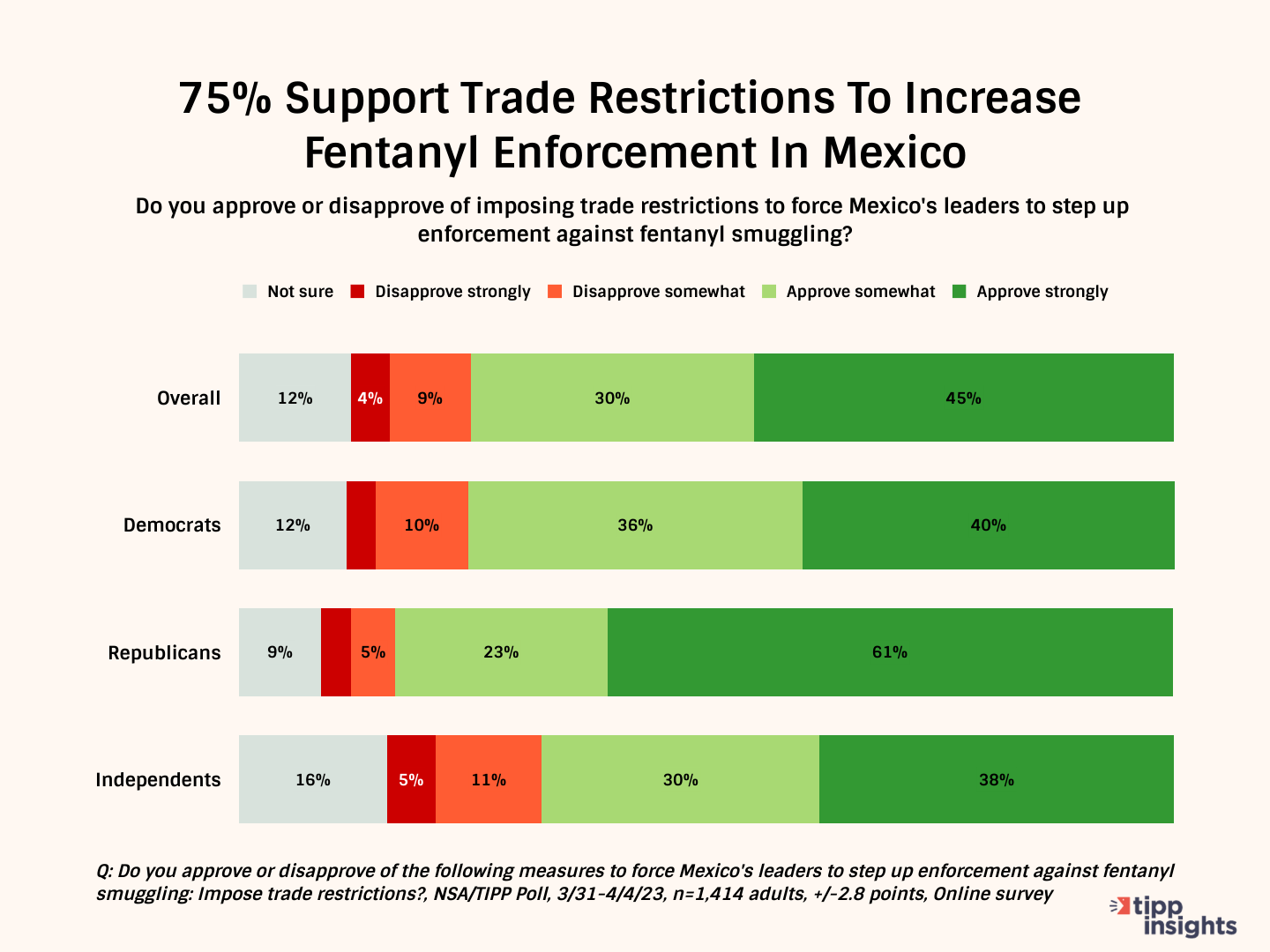
Deploying U.S. Military Assets
A majority (54%) approve deploying U.S. military personnel and assets to stem the flow of drugs across the border. Over a quarter (27%) approve strongly, and a similar share approve somewhat.
Nearly two-thirds of Republicans (63%) support the action. A majority of Democrats (56%) also support it, while less than a majority of independents (43%) favor the action.
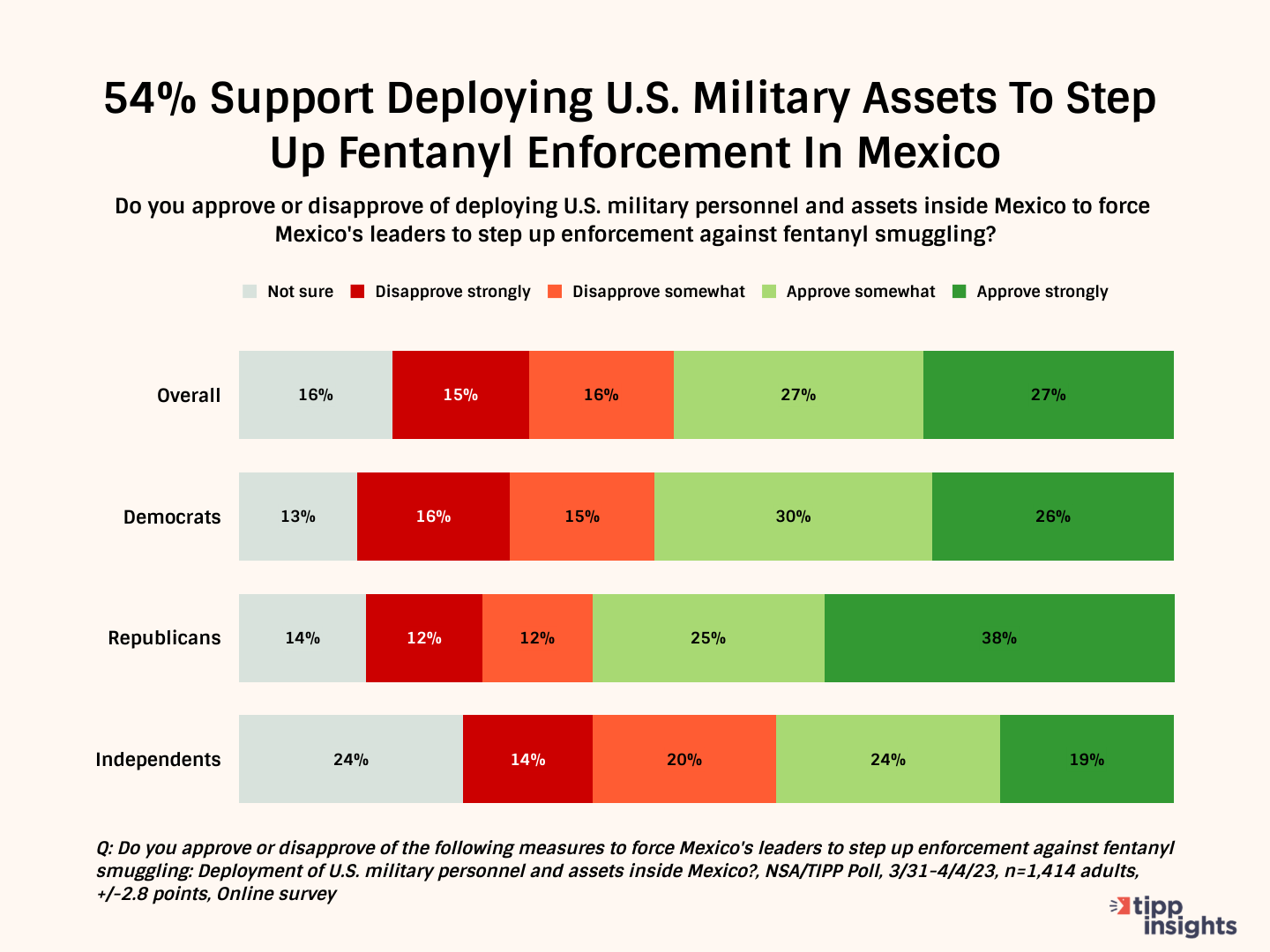
Summary
The NSA/TIPP survey shows that Americans believe that migrants crossing the U.S. southern border pose a problem for their community. The survey also found mixed perceptions regarding the impact of migrants on communities. Additionally, the survey revealed that Americans support tough measures to combat fentanyl smuggling into the US, such as designating drug cartels as foreign terrorist organizations, imposing trade sanctions, and deploying military personnel.
About The Survey
TechnoMetrica conducted the TIPP survey, an online survey for the National Sheriffs' Association, from March 31 to April 4. The nationwide study had a sample of 1,414 Americans, 18 or older, and TechnoMetrica's network of panel partners provided the study sample. Upon the study completion, TechnoMetrica weighted the study dataset by gender, age, race, education, and geographical region to mirror known benchmarks such as the U.S. Census. The survey’s credibility interval (CI) is +/- 2.8 percentage points, meaning the study is accurate to within ± 2.8 percentage points, 19 times out of 20, had all Americans been surveyed. Due to smaller sample sizes, subgroups based on gender, age, ethnicity, and region have higher credibility intervals.
Sheriff Mark Dannels (Cochise County, AZ) is the Chair of the National Sheriffs’ Association Border Security Committee.
Want to dig deeper? Download data from our store and pay what you can afford!
Like our insights? Show your support by becoming a paid subscriber!



